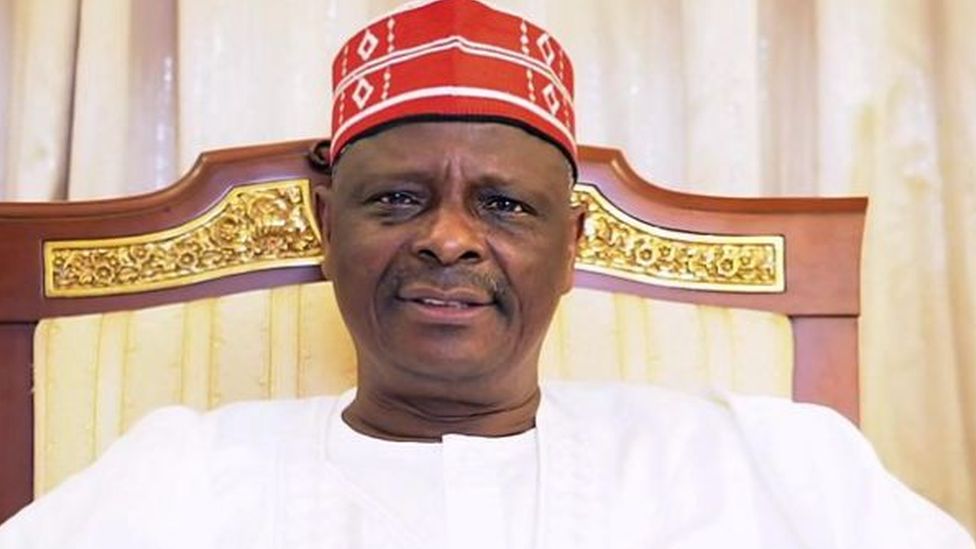The political landscape in Nigeria has witnessed a dramatic shift with the escalating feud between Rabiu Kwankwaso, the former national leader of the Kwankwasiyya Movement, and the New Nigeria Peoples Party (NNPP). The heart of the conflict lies in the defection of several key members of the Kwankwasiyya Movement from the NNPP to the All Progressives Congress (APC), a move that Kwankwaso has publicly condemned as a betrayal of trust. However, the NNPP has fired back, accusing Kwankwaso of being the true betrayer and asserting that he no longer has any authority to speak for the party.
The NNPP’s National Chairman, Dr. Agbo Major, has unequivocally stated that Kwankwaso was expelled from the party, along with his followers, and therefore holds no sway within the NNPP. Major emphasizes that the Kwankwasiyya Movement is not a political party in itself but rather a group that was integrated into the NNPP leading up to the 2023 presidential elections, where Kwankwaso served as the party’s flag bearer. The NNPP asserts that the Memorandum of Understanding (MoU) between the party and Kwankwaso’s movement was dissolved after the elections, effectively freeing members to join any political party of their choosing. This underscores the NNPP’s position that the defecting members are not bound by any agreement to remain with the NNPP and are exercising their constitutional right to political affiliation.
The NNPP’s narrative paints Kwankwaso as an opportunist who attempted to hijack the party after being granted the presidential ticket without fulfilling any financial obligations. This perceived betrayal, according to the NNPP, eroded Kwankwaso’s standing within the party and amongst his followers. Major’s statement suggests that Kwankwaso’s actions have effectively ended his political career within the NNPP, as he has lost control of both the party and his own movement. The defections to the APC are presented as evidence of Kwankwaso’s waning influence and a direct consequence of his expulsion. The NNPP’s leadership argues that Kwankwaso’s attempts to control the party, which was established in 2002, long before his involvement, ultimately backfired and led to his downfall.
The NNPP’s assertions are further strengthened by a recent court ruling that dismissed a lawsuit filed by individuals loyal to Kwankwaso. The lawsuit challenged the legitimacy of the NNPP’s current leadership, including Dr. Boniface Aniebonam, the founder, and Dr. Agbo Major, the national chairman. The court’s decision to reject the suit, citing a lack of jurisdiction over internal party disputes, reinforces the NNPP’s position and affirms the validity of the current leadership structure. This legal victory further isolates Kwankwaso and undermines his attempts to regain control of the party. The NNPP now stands on firm legal ground, solidifying its position against Kwankwaso and his supporters.
Dr. Major’s statement also carries a tone of mockery, highlighting the irony of Kwankwaso accusing others of betrayal when he himself is accused of trying to usurp the party. The NNPP’s response not only counters Kwankwaso’s accusations but also attempts to discredit him by portraying him as a political opportunist who has lost the trust and respect of his followers. The NNPP suggests that Kwankwaso should consider rejoining the APC as an ordinary member, taking advantage of the supposed magnanimity of Senator Abdullah Ganduje, rather than criticizing those who have chosen to do so.
The unfolding events highlight a deeper power struggle within the Nigerian political scene. The defections from the NNPP to the APC represent a significant shift in political allegiances and potentially impact the balance of power in Kano State and beyond. The NNPP’s aggressive stance against Kwankwaso serves to consolidate its position and project an image of stability and legitimacy in the face of internal conflict. The court ruling further strengthens the NNPP’s position, providing legal backing for its current leadership and effectively dismissing challenges from Kwankwaso’s faction. This public clash serves as a stark reminder of the fluid nature of political alliances and the constant maneuvering for power within Nigeria’s dynamic political landscape.


